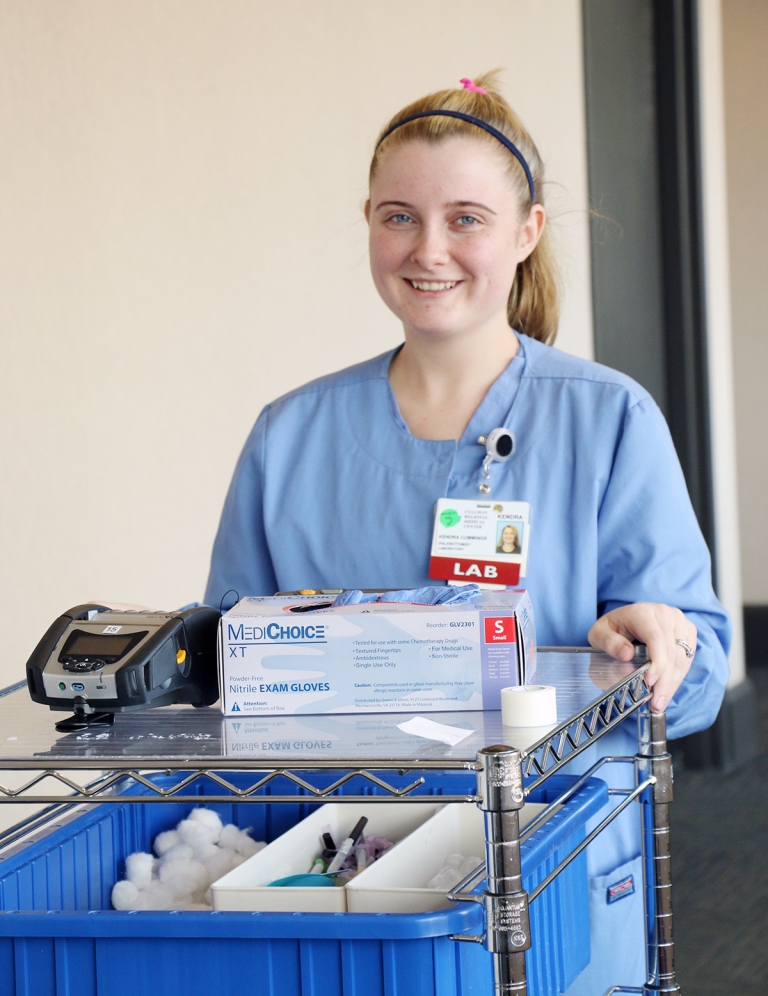
**Title: Phlebotomy Careers: Everything You Need to Know**
**Introduction:**
Are you interested in pursuing a career in the medical field but unsure where to start? Have you considered becoming a phlebotomist? Phlebotomy is a rewarding and in-demand career that involves drawing blood from patients for various medical purposes. In this article, we will delve into the world of phlebotomy careers, exploring the job duties, education and training requirements, salary potential, and more.
**What is Phlebotomy?**
Phlebotomy is the practice of drawing blood from patients for diagnostic tests, blood transfusions, donations, or research purposes. Phlebotomists are trained healthcare professionals responsible for collecting blood samples in a safe and sanitary manner. They play a crucial role in the healthcare system by ensuring accurate and reliable test results.
**Job Duties of a Phlebotomist:**
– Collecting blood samples from patients
– Properly labeling and storing blood samples
– Following safety protocols to prevent infections
– Interacting with patients in a compassionate and professional manner
– Communicating effectively with healthcare providers
**Education and Training Requirements:**
To pursue a career in phlebotomy, you will need to complete a phlebotomy training program. These programs are typically offered at community colleges, vocational schools, or healthcare facilities and can range from a few weeks to several months in length. Some programs may also require clinical externships to provide hands-on experience.
**Salary Potential:**
According to the Bureau of Labor Statistics, the median annual wage for phlebotomists was $35,510 in May 2020. However, salaries can vary depending on factors such as location, experience, and employer. With further experience and certifications, phlebotomists can potentially earn higher salaries.
**Benefits of a Phlebotomy Career:**
– High demand for phlebotomists in healthcare settings
– Opportunity for career advancement with additional certifications
- Fulfilling work that directly impacts patient care
- Flexible work schedules in hospitals, clinics, and laboratories
**Practical Tips for Aspiring Phlebotomists:**
– Develop strong communication and interpersonal skills
– Stay current on phlebotomy best practices and safety guidelines
– Pursue certification through organizations such as the National Healthcareer Association or the American Society for Clinical Pathology
**Case Study:**
Mary, a recent graduate of a phlebotomy training program, secured a job at a local hospital where she quickly excelled in her role. With her attention to detail and compassion for patients, Mary became a valued member of the healthcare team and was promoted to a supervisory position within a year.
**Firsthand Experience:**
“I always had a passion for helping others and knew that a career in healthcare was the right path for me. Becoming a phlebotomist allowed me to make a difference in patients’ lives every day while pursuing a fulfilling career.” – Sarah, Certified Phlebotomist
**Conclusion:**
a career in phlebotomy offers a unique opportunity to work in the healthcare field and make a meaningful impact on patients’ lives. With the right training and certifications, you can embark on a rewarding journey as a phlebotomist. Whether you are just starting your career or looking to transition into a new field, consider exploring the exciting world of phlebotomy careers.
Remember, phlebotomy is not just about drawing blood – it’s about providing quality care and compassion to patients in need. If you have a passion for helping others and a strong attention to detail, phlebotomy may be the perfect career path for you. Start your journey towards a rewarding phlebotomy career today.